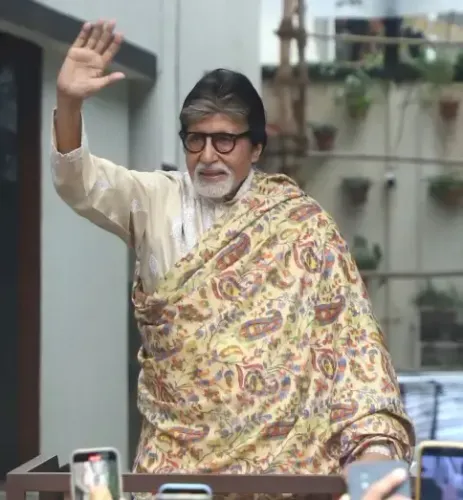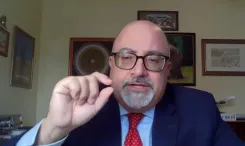Did Zubeen Garg's Death Lead to Assam CIC's Resignation?

Synopsis
Key Takeaways
- Bhaskar Jyoti Mahanta resigned amid RTI inquiries concerning his brother.
- Seven individuals have been arrested related to Zubeen Garg's death.
- Mahanta emphasized the importance of public trust and transparency.
- He implemented significant reforms during his short tenure.
- The investigation continues with judicial proceedings ongoing.
Guwahati, Nov 6 (NationPress) Bhaskar Jyoti Mahanta, the Chief Information Commissioner of Assam, has stepped down from his role following a wave of Right to Information (RTI) requests that sought information regarding his brother, Shyamkanu Mahanta. Shyamkanu is one of the pivotal figures behind the music event where the late singer Zubeen Garg was set to perform before his tragic demise.
Mahanta's resignation was prompted by the advice of Chief Minister Himanta Biswa Sarma.
This decision unfolds amid a probe into the circumstances surrounding the death of the beloved artist, who sadly passed away in Singapore on September 19.
To date, law enforcement has taken seven individuals into custody in connection with the case. Among those arrested are event organizer Shyamkanu Mahanta, Garg's cousin and Deputy Superintendent of Police Sandipan Garg, the singer's manager Siddharth Sharma, and two band members, Shekharjyoti Goswami and Amritprabha Mahanta, alongside two members of the private security team, identified as Nandeswar Bora and Paresh Baishya.
All seven individuals are presently under judicial custody until November 11.
In a thorough statement on Facebook, Bhaskar Mahanta expressed that his decision to resign was driven by a sense of conscience and fairness.
He articulated that he did not want his role to cast any doubt on the public if RTI applications concerning his brother were presented to the Information Commission.
Bhaskar Mahanta, who took office as Chief Information Commissioner on April 5, 2023, mentioned efforts taken to digitize the commission's operations, such as implementing online applications, conducting hearings via video conferencing, enhancing case resolution, and addressing misuse of the RTI Act for intimidation or extortion.
He emphasized that these reforms aimed to render the RTI process more accessible and transparent.
However, he acknowledged that a “special situation” had arisen.
“When the controversy regarding my brother came to light, I made it clear to myself that if any RTI was submitted related to him, my position should not cast the slightest shadow of doubt in the public mind,” he remarked.
Mahanta noted that although an RTI applicant had expressed trust in his integrity while seeking information about government funding for cultural events tied to Shyamkanu Mahanta, he still opted to resign, adhering to the resolution he had made earlier.
“Even if I had remained in office, the applicant would have received accurate information. Yet, I felt it was essential to eliminate any possibility of misunderstanding,” he concluded.










